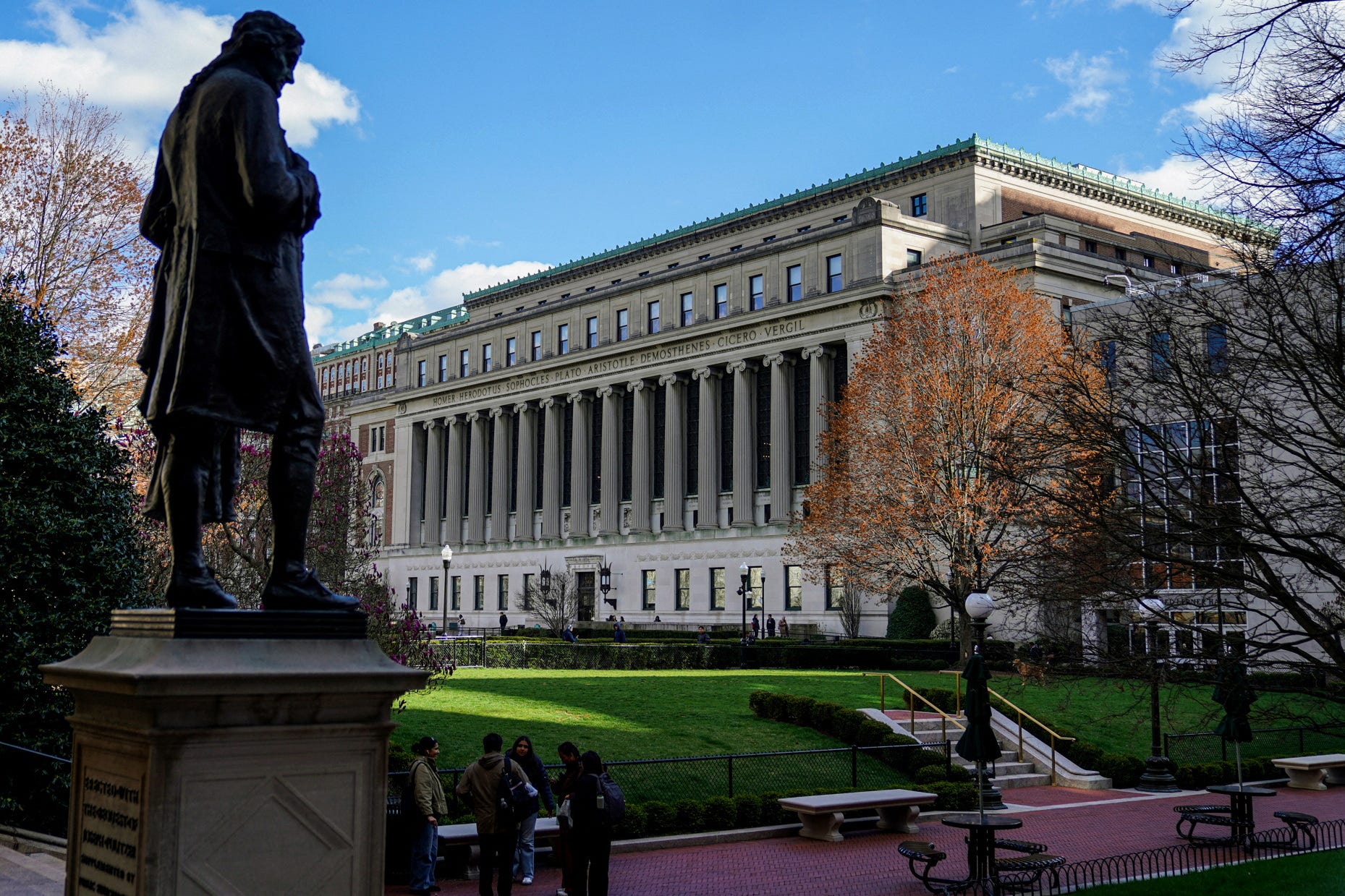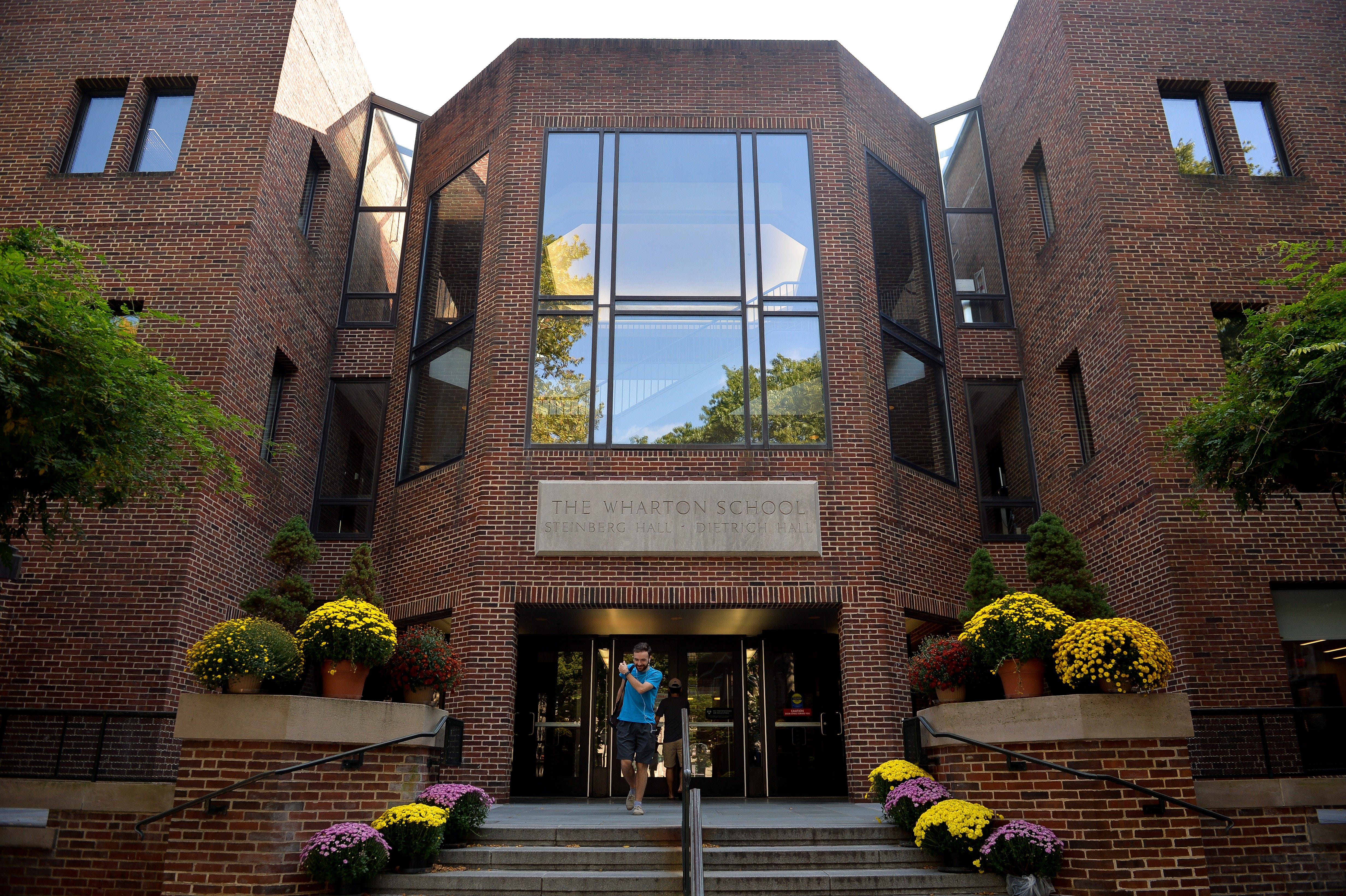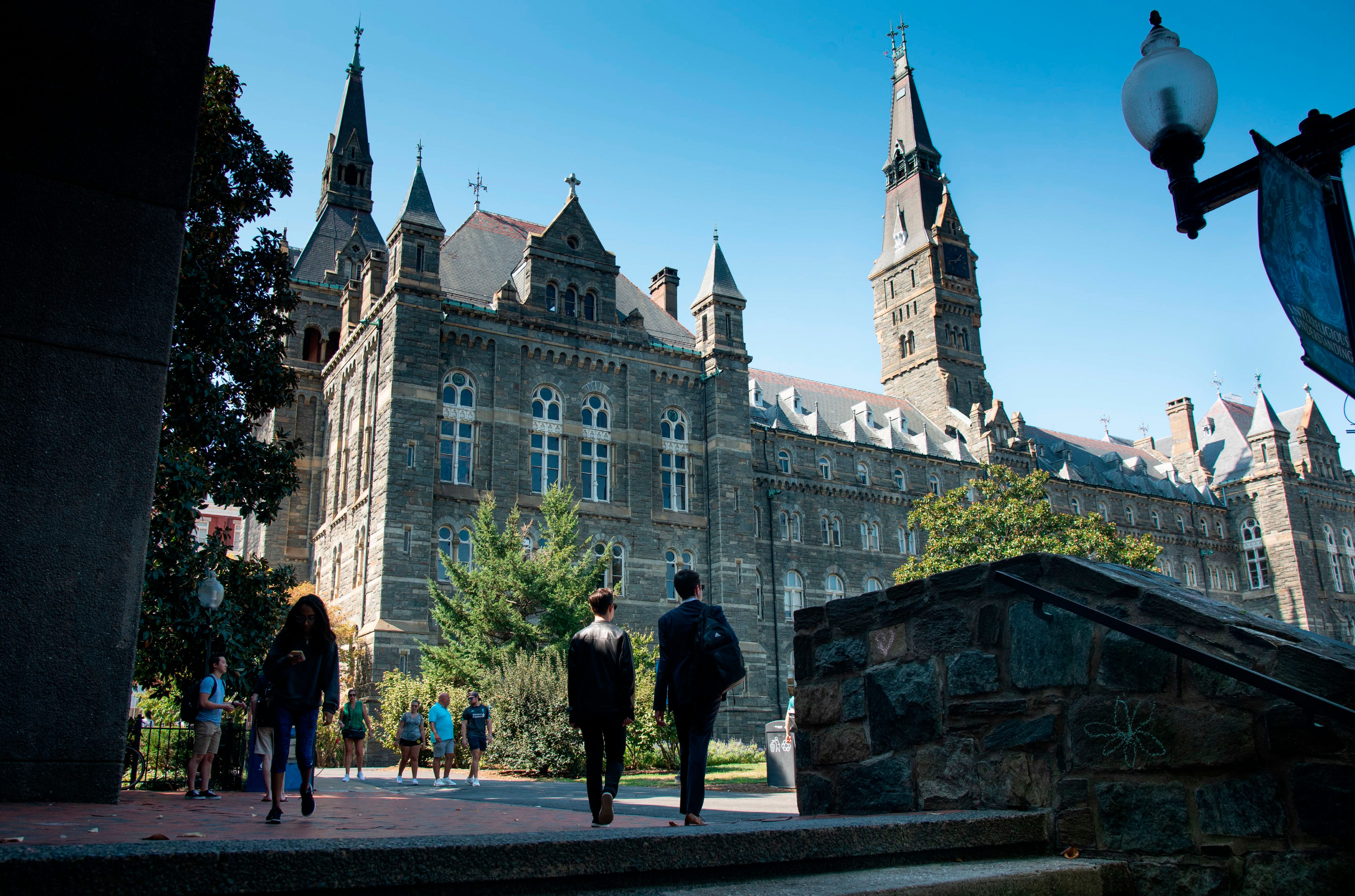
Getty Images; Alyssa Powell/BI
In his first week as a freshman at Columbia University, Jordan Cancel, a Floridian who was then 18, saw just how competitive a career path to finance would be.
Outside the iconic Butler Library, known for its Neoclassical columns, mobs of students were clamoring to get to informational booths set up by the college’s finance and business clubs.
“There were lines and lines of kids queued up at these club booths,” Cancel, now 20, recalled in an interview with Business Insider. The students, he said, were all vying to converse with the clubs’ leaders and make a good impression. “I was just honestly really overwhelmed.”
Weeks later, heading to his first admissions interview with one of these clubs, the stakes felt palpable. Cancel recalled reading the Excel sheet with timeslots for a lengthy list of applicants as he waited for his name to be called. He brought plenty of résumé copies and dressed in business formal, “down to the shoes,” because he’d heard that assessment metrics included attire.
“I was so beyond scared,” said Cancel, who was ultimately accepted into the club.
As part of Business Insider’s series on career paths in finance, we interviewed about 30 students from schools popular with Wall Street recruiters, including the University of Pennsylvania, Columbia University, New York University, and Georgetown University. They described how campus business and finance clubs had become a crucial gateway to a career on Wall Street.
See more stories from BI’s Path to Wall Street series here, including what it’s really like to work for a hedge fund and data showing where the average banker went to school and how much she makes.
These are extracurricular, student-run groups — like a chess club or drama society — that come with names like the “investing banking club” or the “finance club.” Some run full-fledged investment funds, while others are Greek fraternities that recruit students majoring in business, finance, marketing, or accounting.
What distinguishes them is that they tend to offer their members VIP access to campus recruiters, specialized training sessions, and other tools to help students snag the all-important investment banking internship, which is the best path to a full-time job after graduation.
The catch? Their perks have created a race for membership, and the admissions process to join a club can be as cutthroat as the industry itself.
You want to be part of the résumé book.
This is the latest in a series of stories exploring careers in finance, how they are changing, and how these shifts are affecting young people. The clubs help Wall Street employers by creating a clear pipeline of job candidates, and firms have been known to cater to them as a result.
While it’s unclear exactly when these clubs became must-haves for a Wall Street job, the people who spoke with BI tended to agree that the situation reflected a race among employers to recruit talent earlier and earlier.
A Wharton sophomore said he knew of high school students who’d started preparing to get into clubs as soon as they were accepted to college — before they’d even arrived on campus.
“I remember my senior year, after I got into college, I was just messing around. I was just having fun,” but that’s not the case anymore, he said, adding: “You’ve gotten into these places and it’s like, all right, now work on building a DCF” — a valuation method. “It’s outrageous.”

RYAN MURPHY/REUTERS
To be sure, the club scene has long been exclusive. From the “eating clubs” at Princeton to the average sorority, organizations will choose members based on social interactions, pedigree, and background. What makes the financial and business clubs different is that they are less about making friends or exploring new interests and more about your résumé. This has led to a degree of meritocracy, with the clubs requiring wannabe members to prove they have enough know-how and genuine interest to join.
Club leaders from three schools told BI that their organizations accepted less than 10% of their freshman applicants, who numbered 150 to 300 in recent years.
The interest makes sense. Members get exclusive exposure to the industry, including training and tips from upperclassmen who have already gone through Wall Street’s rigorous internship application process. Some clubs give their members real money to manage — whether a percentage of the university’s endowment or capital from members and alumni.
It’s hypercompetitive, it’s overwhelming, and you have to be pushing constantly.
Firm recruiters often interact with student clubs, granting members special access to meetings and events. A club might, for example, invite employees of a bank (often school alumni) to give a presentation on their summer analyst program, followed by one-on-one “coffee chats” with members.
One student club leader said he landed an investment banking internship because members of his club were invited to visit the firm’s headquarters. The club leader is one of many students who asked to remain anonymous to protect their future careers.
“I have so many opportunities to network internally and have specific résumé drop links that these recruiters give to the club specifically, that are only open to members,” he told BI about his campus club experience. “You want to be part of the résumé book.”
The hedge fund Balyasny went to campus clubs to find candidates for its recent stock pitch competitions, which it uses to identify talent. A private equity worker, meanwhile, said the “No. 1 thing” she looked for when she was a recruiting captain of an investment bank was whether students from her alma mater had been members of “the two most prestigious investment clubs on campus.”

Charles Mostoller/REUTERS
Competition to get into campus clubs has gotten so intense that Georgetown’s McDonough School of Business barred first-semester freshmen from joining them in 2023.
Some students have balked at the rule, saying it puts them behind in recruiting for Wall Street internships, which students must apply for halfway through their sophomore year.
“Kids are just so much less prepared,” one student told the Georgetown Voice of the impact the rule was having on students interested in working on Wall Street.
The student publication reported that the rule wasn’t making the admissions process any less competitive and was just delaying the flood of applications.
While the pressure these young people face may feel exaggerated, there are plenty of signs that the stakes are all too real. Wall Street firms like Goldman Sachs have disclosed record levels of applicants to their internship programs. And Wall Street’s earlier-than-ever recruiting schedule compelled Steve Sibley, a professor at Indiana University’s Kelley School of Business, to move an introductory corporate finance class he runs from the fall of students’ sophomore year to the spring of their freshman year.
“We realized we weren’t offering classes early enough for these students,” he said.

Robert Knopes/Universal Images Group via Getty Images
The end result has been a club culture that often mimics the industry itself, including a cutthroat selection process. Some clubs conduct three to five rounds of interviews, students told BI, which can involve a résumé review (yes, your high school résumé), a social assessment, and multiple technical rounds in which you’ll be grilled on real-world finance questions.
The club leader described a freshman applicant who froze and started crying after flubbing a question. It was hard to watch, and, needless to say, the student didn’t make it to the next round.
“Of course it sucks when you have to reject people,” the club leader said. “But at the end of the day, we have X amount of applicants and a limited number of spots. And that is literally just how the industry is set up as well. It’s hypercompetitive, it’s overwhelming, and you have to be pushing constantly.”
Most of the students BI spoke with echoed that low acceptance rates were extreme and sometimes ridiculous. They also said it’s this way for a reason, including the difficulty of managing and teaching hundreds of other students.
“We only have so much bandwidth as people running the club,” a Wharton junior said. “The impact is lower if you’re dealing with 300.”
Also, for better or worse, being a sought-after club brings a level of prestige and bragging rights for those who manage to get in.
“You want to be in the club where so many people want to get in,” the club leader said.
As a freshman at Georgetown University in the fall of 2022, Jonathan Rothschild refused to apply to finance clubs his first semester, he said, once he learned about the rigorous interview processes and acceptance rates of under 10%.
“I was like, look, I just got here. I don’t even know if I want to be in this club, let alone if I want to do five rounds of interviews for it,” he told BI.
“I don’t think that’s how we should be treating people freshman year.”
That choice led him to Georgetown Collegiate Investors during his second semester, a student-owned investment fund that lets any student participate in its training program and later become a “junior analyst” on the team if they pass a basic knowledge test.
The fund has more than $150,000 in assets under management, money raised from current and former student members. Rothschild, now a junior and co-CEO of GCI, argues that the selective of these clubs favors people who have been exposed to finance early in life.
“If you’re only accepting 5% of the people, you’re getting the people who already know what they’re doing,” he said, adding: “I’m not saying take everyone, but you could take 25% of people at Georgetown and be fine.”
The very students who lack the background or knowledge to get into these clubs are the ones who stand to benefit most, he said.
“That’s always been our selling point: We’ll train you, we’ll get you ready, you don’t need prior knowledge, we will teach you.”
Want to share your career path with us? Fill out this quick form.
Have a story to tell? Reach out to Emmalyse Brownstein via email at [email protected], or the encrypted app Signal/SMS at (305) 857-5516.
The post The secret backdoor to a career on Wall Street: student finance clubs appeared first on Business Insider.




